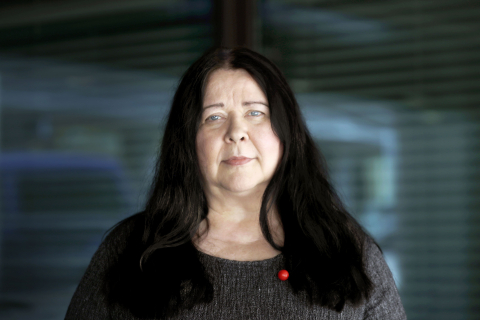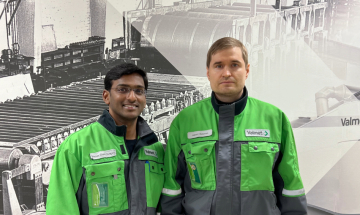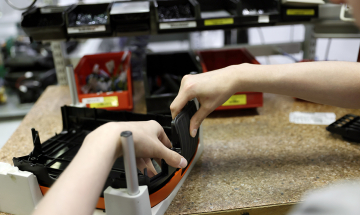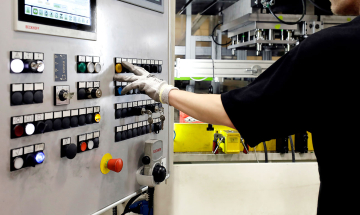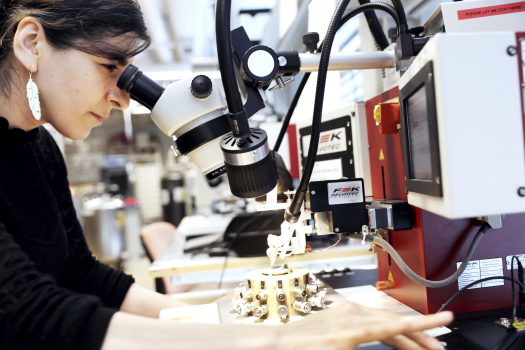
Finland’s SMEs achieved record-breaking successes in securing EU funding: “Finland could double the amount of Horizon funding it receives”
Wärtsilä Finland Oy, EUR 14 million.
Metso Outotec, EUR 7 million.
Infinited Fiber Company and F-Secure, both EUR 5 million.
“We should celebrate this! We have received 1.5 times as much funding as we put in, and SMEs have been very active,” says Mervi Karikorpi, Head of EU Innovation and Industrial Policies at Technology Industries of Finland.
She has worked with Aula Research to compile a record of the successes of Finnish applicants in the EU Horizon 2020 and other EU funding instruments. The information is sourced from the European Commission.
Horizon is a financial support programme based on grants for companies, research institutes and universities with a focus on joint research, development and innovation projects. In the previous seven-year period, the Horizon programme awarded a total of EUR 1.5 billion to Finnish entities. Finland stands head and shoulders above its reference countries – Finland managed to bring home about 1.5 times as much money as it paid into the EU. Never before has Finland achieved such success.
Mervi Karikorpi believes there are several reasons behind this excellent outcome, first and foremost, the capable applicants.
“Finland has very strong expertise in research and innovation in many fields.”
NETWORKS ARE CRUCIAL FOR EU PROJECTS
The EU favours joint applications for Horizon funding, where companies, research groups and universities work on pivotal innovations in their fields. Partnership networks also present opportunities for less experienced companies to learn without requiring them to take a leading role. However, companies may also embark on projects alone.
Karikorpi was very happy to see the relative success of SMEs, which were awarded more funding than before. Companies received 26 per cent of the total amount awarded to Finland, and SMEs accounted for 69 per cent of this figure.
“Finnish companies clearly have a better understanding of EU funding instruments now. It is also pleasing to see them make more diverse use of the EU’s various funding opportunities. For example, companies are well represented in collaborative projects under the Innovation Fund, Defence Fund and Connecting Europe Facility,” Karikorpi says.
Three tips for companies: How to apply for EU funding
- Think about your business strategy. What business do you want to be in five years from now? What type of research, development and innovation is necessary to get you there?
- Whom will you work with towards this goal? Where are these partners? Are they customers, research institutes or other entities? What kind of technology, equipment and investment do you need?
- Where is funding available? If your financial position permits it, you could make do on your own. If you need additional funding, the EU is one option. Obtaining an EU funding award often makes it easier to secure other funding.
The programme offers participants several benefits in addition to money. Members of the network gain access to the latest knowledge and knowhow. Karikorpi emphasises that cooperation between top-level researchers and companies developing commercial products is more fruitful than people think.
“It is useful for companies to get involved in partnership networks like these at an early stage.”
FINLAND COULD RAKE IN AS MUCH AS EUR 6 BILLION
Mervi Karikorpi is looking forward to a report on the research and commercial breakthroughs enabled by Horizon funding. The final evaluation report is due at the end of the year. Karikorpi already knows from individual companies that EU-funded projects usually improve the competitiveness and predictability of businesses and help them expand their networks of contacts.
“Amid the current shortage of experts, a network helps its members to realise they do not need to do everything themselves. It makes sense to share knowledge, expertise and resources with partners.”
What types of projects will receive EU funding next? Karikorpi advises applicants to state as clearly as possible how their innovations or research will contribute to the EU’s policy objectives such as the green transition, in addition to their own objectives.
Worth applying. “In addition to the financial aspect, partnership networks offer many other benefits that companies would be hard-pressed to achieve on their own. One such benefit is increased resilience, as networks provide a constant stream of information about changes, regulation and innovations in the field,” Mervi Karikorpi says.
In the future, money will be channelled primarily towards climate action and reducing emissions and energy consumption.
“In the past, Finnish applicants may have suffered from an inability to connect their applications to the bigger picture. This is one reason why Finnish applicants had the lowest success rate among the reference countries.”
The EU’s research, development and innovation programmes are not about regional politics, and there are no national quotas for RDI funding. Excellence and impact are the key criteria for selecting projects for funding. Consequently, Finnish entities are in a strong position to improve the impact and funding of European cooperation. Mervi Karikorpi recommends exploring the funding programmes and instruments that support the various phases of the business innovation process.
“I am sure that Finnish applicants can win more funding. It is entirely realistic to expect Finland to obtain twice as much funding under the Horizon Europe programme as it did from the Horizon 2020 programme. This would mean bringing in as much as EUR 6 billion from the nine largest EU funding instruments.”
Technology Industries of Finland’s advice for the next government:
- The Government Programme should set an ambitious target for developing EU RDI cooperation: Finnish companies, research institutes and universities are involved in projects creating international breakthroughs in research and innovation.
- Finland’s carbon handprint and digital green exports are growing. The amount of funding awarded to Finland under the EU’s RDI programmes from 2021 to 2027 could increase substantially in comparison with the previous funding period. The EU should increase its RDI funding in absolute and percentage terms in the next funding framework to be prepared for the period from 2028 to 2034. This will make it possible to achieve the objectives for the digital and green transition.
- Finnish entities should work together and take the lead in advancing their interests. The objectives and actions required for EU engagement should be prioritised annually in cooperation between the public and private sectors to achieve these objectives. The way of working by the EU Committee and its sub-committees should be renewed so Finland – the public and private stakeholders - can be more effective in proactively influencing EU decision-making and EU initiatives.
- A dedicated budget item and heading for the preparation of EU projects and national matching funds should be included in the budget for 2024 to 2027. This will enable quicker decisions on participation in EU initiatives, if necessary. Supporting the high-quality preparation of projects in areas important to Finland will increase the success rate and boost the effectiveness of projects.
Text: Kaisa Viitanen
Photos: Liisa Takala
More information:
Mervi Karikorpi, Head of EU Innovation & Industrial Policies, phone +358 40 7419801, mervi.karikorpi@teknologiateollisuus.fi, Twitter: @mervikarikorpi
MORE ON THE SUBJECT:
Can Finland set a new record for winning EU research and innovation funding, Mervi Karikorpi?
